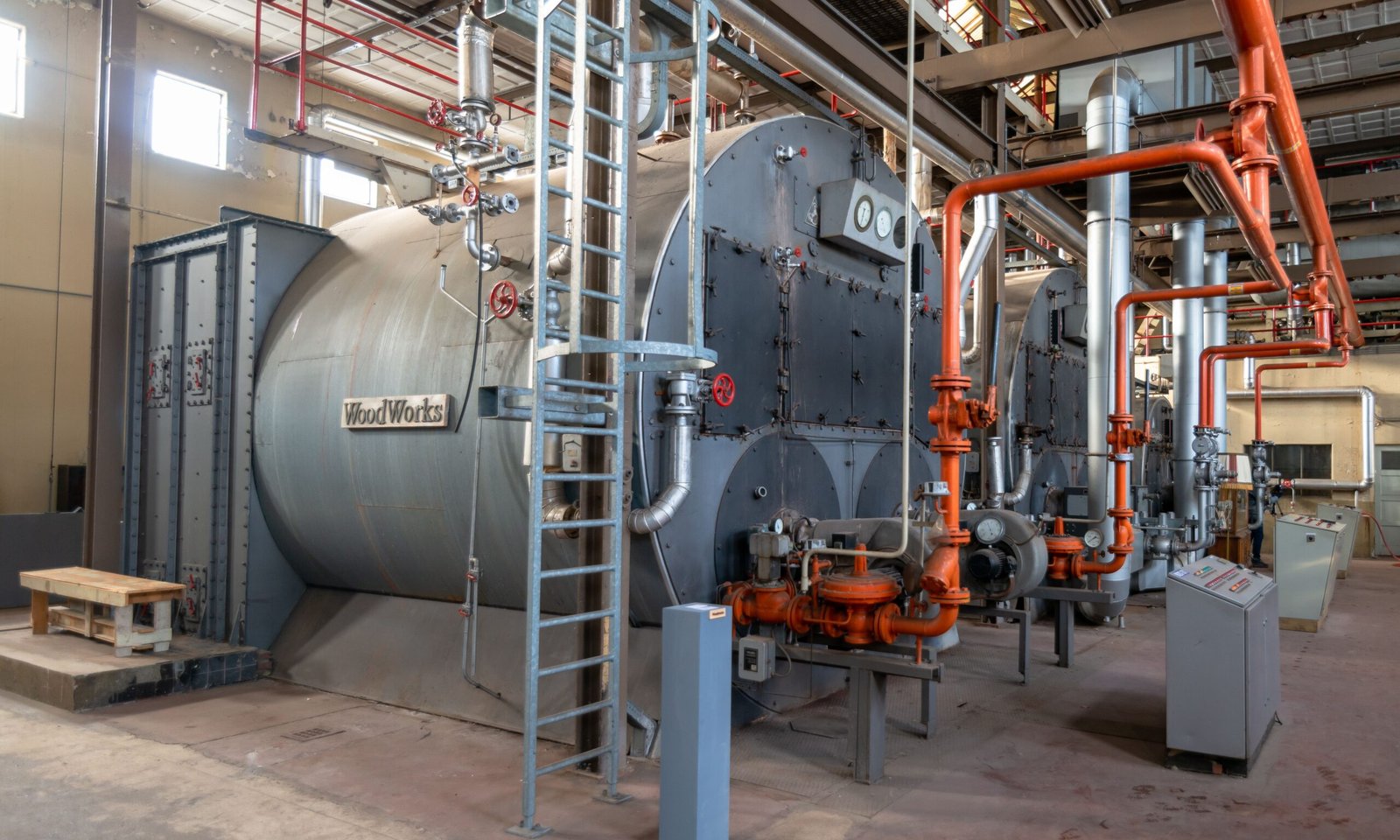How to Get Plant Room Operator Jobs in Gulf Countries: A Comprehensive Guide
The demand for Plant room Operators jobs in Gulf countries (GCC) countries, including the Saudi Arabia,United Arab Emirates (UAE), Qatar, Kuwait, Bahrain, and Oman, has been on the rise due to the region’s rapid industrialization and infrastructure development. Among the professions experiencing growth in demand are plant room operators, a role critical in maintaining the efficiency of various industrial operations, such as power plants, water treatment facilities,Boilers, and HVAC (heating, ventilation, and air conditioning) systems.
This article will provide a comprehensive guide on how to secure plant room operator jobs in the Gulf countries, covering the different types of plant operators, the essential skill sets required, and the role of recruitment agencies in facilitating employment opportunities.
Types of Plant Operators in Gulf Countries
1. Power Plant Operators
Power plant operators are responsible for controlling and maintaining the systems that generate and distribute electric power. They monitor equipment, regulate voltage and electricity flows, and ensure that the plant operates efficiently and safely.
Common Tasks of Power Plant Operators:
- Monitoring power generation equipment and meters.
- Adjusting controls to maintain appropriate power output.
- Managing fuel supply and maintaining equipment.

2. Water Treatment Plant Operators
Water treatment plant operators oversee the processes involved in treating water to make it safe for public consumption or industrial use. In the Gulf, where fresh water is a scarce resource, these operators are essential in ensuring access to clean water through desalination plants and other treatment facilities.
Common Tasks of Water Treatment Plant Operators:
- Monitoring chemical levels in water.
- Managing water filtration, sedimentation, and disinfection processes.
- Ensuring compliance with environmental regulations.
3. HVAC Plant Operators
HVAC (Heating, Ventilation, and Air Conditioning) plant operators manage and maintain climate control systems within buildings. In the extreme weather conditions of the Gulf region, effective HVAC systems are crucial for the comfort of both residential and commercial spaces.
Common Tasks of HVAC Plant Operators:
- Maintaining and repairing HVAC systems.
- Ensuring optimal performance through regular inspections.
- Monitoring environmental controls and air quality standards.
4. Waste Management Plant Operators
Waste management plant operators are responsible for running facilities that process and dispose of waste. These facilities may include waste-to-energy plants, landfill sites, or recycling plants. Waste management is becoming a priority in Gulf countries due to growing concerns about sustainability and environmental conservation.
Common Tasks of Waste Management Plant Operators:
- Overseeing the operation of machinery that processes waste.
- Ensuring compliance with health and safety regulations.
- Managing the disposal and recycling of materials.
4. Boiler Room Operators
Boiler rooms are central to many industrial processes, providing the heat necessary for various applications. Boiler room operators manage the equipment that heats water or creates steam used in production and energy generation.
Common Tasks of Boiler Room Operators:
- Monitoring gauges, meters, and water levels in the boiler system.
- Performing routine maintenance on boilers and related equipment.
- Ensuring proper fuel supply and combustion efficiency to minimize waste and maintain safety.
Boiler rooms are vital in power generation and industrial plants in the Gulf, where steam is often used for energy production or industrial heating processes. Boiler room operators are crucial in ensuring efficient operations and safety compliance in these high-pressure environments.
5. Pump Room Operators
Pump room operators manage systems that control the movement of liquids, such as water, chemicals, or fuels, within industrial facilities. Pump rooms are integral in water supply systems, fire suppression systems, and HVAC installations in large buildings.
Common Tasks of Pump Room Operators:
- Monitoring pump performance and ensuring proper fluid flow rates.
- Performing regular maintenance on pumps and associated valves.
- Troubleshooting issues in hydraulic systems to prevent equipment breakdown.
Pump room operators are essential in sectors like oil and gas, where liquid management plays a critical role in refining processes and the distribution of fuels.
Skillset Required for Plant Operators in the Gulf
1. Technical Expertise
Plant operators need extensive knowledge of the machinery and systems they manage, including electrical, mechanical, and automated processes. Technical expertise ensures smooth operations and minimizes the risk of malfunctions.
2. Problem-Solving Skills
In an industrial setting, unexpected issues with machinery or processes can arise. Operators must be able to quickly identify and resolve these problems to avoid system shutdowns or safety risks.
3. Attention to Detail
Monitoring complex systems requires a high level of attention to detail. Operators must carefully watch gauges, meters, and control panels to ensure operations are functioning within acceptable parameters.
4. Safety Awareness
Given the nature of working with machinery and hazardous materials, safety is paramount. Operators must be familiar with safety protocols, wear the necessary protective gear, and follow guidelines to prevent accidents.
5. Computer and Automation Skills
As plants increasingly adopt automated systems, operators must be proficient in using computers and software to monitor and control operations. Familiarity with automation technology is especially crucial for modern plants.
6. Teamwork and Communication Skills
Operators work as part of a larger team that includes engineers, technicians, and supervisors. Good communication and collaboration are necessary to ensure smooth plant operations and the effective resolution of any issues.
7. Physical Stamina
Plant operators often work in physically demanding environments. They may need to handle heavy equipment, work in confined spaces, or stand for extended periods. Physical stamina and strength are essential for the job.
Certifications and Training for Plant Operators
Obtaining the right certifications and training is crucial for increasing your employability as a plant operator in Gulf countries. Employers in the region often look for candidates with a combination of technical education, industry-specific certifications, and practical experience. Here are some certifications and training programs that can help plant operators secure jobs in the Gulf:
1. ITI Diploma (Industrial Training Institute)
One of the most recognized qualifications for plant operators, particularly in South Asia, is an ITI diploma. These diplomas provide comprehensive, practical training in fields like Mechanical, Electrical, or Refrigeration & Air Conditioning. An ITI diploma demonstrates that you have undergone structured, hands-on training in operating and maintaining industrial equipment.
- ITI in Mechanical Fitter: Focuses on mechanical systems and prepares operators to work in mechanical plants, HVAC systems, and boiler rooms.
- ITI in Electrical: Provides training on electrical systems, making candidates eligible for roles in power plants and electrical substation management.
- ITI in Refrigeration and Air Conditioning: Essential for HVAC plant operators, this diploma equips candidates with skills to operate and maintain large-scale cooling and ventilation systems.
2. Diploma in Mechanical Engineering
A Diploma in Mechanical Engineering is another highly regarded qualification for plant operators, particularly for those aiming to work in power plants, water treatment facilities, and boiler rooms. This diploma provides both theoretical knowledge and practical skills in managing mechanical systems, machinery maintenance, and troubleshooting.
3. Diploma in Electrical Engineering
This diploma focuses on the operation and maintenance of electrical systems, which is crucial for roles in power generation and electrical distribution plants. Candidates with this qualification are well-positioned to work as power plant operators, electrical control room operators, or electrical technicians in industrial facilities.
4. Diploma in Instrumentation and Control Engineering
A Diploma in Instrumentation and Control Engineering equips plant operators with the ability to monitor and manage the control systems that regulate machinery. This qualification is particularly relevant for automation-based operations in power plants, desalination plants, and HVAC systems, where digital monitoring and control are key.
5. Boiler Operator Certification
For those specializing in boiler room operations, Boiler Operator Certification is an essential qualification. This certification covers the fundamentals of boiler operation, maintenance, and safety procedures. Gulf employers often prefer candidates with this certification for roles in industries that use steam-based systems.
6. Pump Operator Certification
Pump room operators can benefit from specialized certifications in pump operation, particularly in sectors like oil and gas, water treatment, and HVAC. A Pump Operator Certification demonstrates knowledge of hydraulic systems, fluid mechanics, and pump maintenance, which are critical skills for ensuring efficient and safe operations in pump systems.
7. Certified Plant Operator (CPO)
This certification provides broad training in plant operations, including safety procedures, system maintenance, and troubleshooting. The CPO certification is recognized internationally and is valuable for candidates seeking roles in power plants, water treatment facilities, or waste management plants.
8. Occupational Safety and Health Administration (OSHA) Certification
While not industry-specific, an OSHA certification is important for demonstrating a commitment to workplace safety. Given that plant operators often work in hazardous environments, having OSHA certification shows that you are knowledgeable about safety protocols and risk management.
9. Technical Diplomas and Engineering Degrees
For higher-level roles or supervisory positions, employers in the Gulf may require candidates to have more advanced qualifications such as a Bachelor’s Degree in Mechanical, Electrical, or Civil Engineering. These degrees provide a deeper understanding of engineering principles and prepare candidates for complex operational challenges.
By obtaining these certifications and diplomas, you can enhance your skillset, improve your employability, and meet the specific requirements of Gulf employers looking to hire plant room operators across various industries.
The Role of Recruitment Agencies near me
Recruitment agencies are a vital resource for those seeking plant room operator jobs in the Gulf. Many employers in the region partner with recruitment agencies to find skilled professionals. These agencies provide multiple benefits to job seekers, including access to exclusive job listings, visa assistance, and interview preparation.
Conclusion
Plant room operator jobs are in high demand across Gulf countries as the region continues to industrialize. Whether you specialize in power plants, water treatment facilities, HVAC systems, boiler rooms, or pump rooms, possessing the right skills and qualifications is essential for securing these jobs. Recruitment agencies like LinkArabia play a crucial role in connecting job seekers with Gulf employers, offering assistance with job searches, visa applications, and interview preparation. With the right certifications and a proactive job search strategy, aspiring plant room operators can find rewarding career opportunities in the Gulf region.
Get in touch with
Premier Recruitment Agency
of Pakistan
Disclaimer :
The information provided in blog articles and how-to guides on the LinkArabia website is for general informational purposes only. While we strive to provide accurate and up-to-date content, we make no representations or warranties of any kind, express or implied, about the completeness, accuracy, reliability, suitability, or availability of the information. Any reliance you place on such information is strictly at your own risk. For more information , please read linkarabia disclaimer policy.




